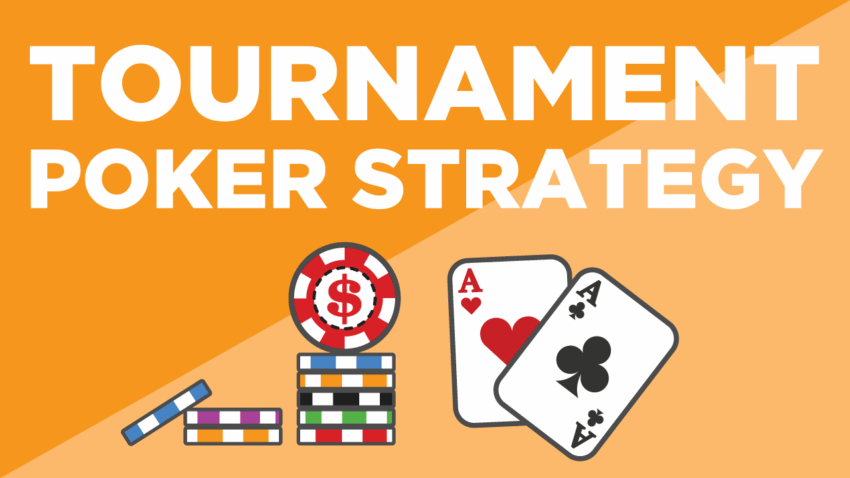Poker tournament strategies are crucial for anyone looking to excel in competitive play. With the stakes high and intense pressure mounting, players must devise a solid game plan to secure their success in poker tournaments. A well-thought-out approach not only maximizes chip management but also incorporates essential psychological tactics and adaptability. In this guide, we will delve into winning poker strategies that can give you an edge, whether you’re a novice or a seasoned player. From vital poker tournament tips to the intricacies of tournament strategies, mastering these elements is key to your enduring success in the game.
When it comes to thriving in competitive poker events, understanding the dynamics of tournament play is essential. Whether referred to as competitive poker strategies or tactical approaches to tournament gaming, the focus remains the same: achieving success through precise planning and execution. With the right methods, players can navigate the complexities of the game, striking a balance between aggressive play and strategic caution. As we explore the various elements of crafting a successful poker game plan, you will discover how to optimize your decision-making processes and enhance your performance at the tables.
Effective Poker Tournament Strategies for Winning
When it comes to achieving success in poker tournaments, having a solid strategy lays the foundation for competitive play. Effective poker tournament strategies begin with understanding the unique dynamics of tournament structures, including blind levels and payout distributions. This preparation allows players to adapt their approach as the tournament progresses, ensuring they are not just reacting to situations but proactively shaping their gameplay to capitalize on opportunities. A well-planned poker game plan that outlines your early and late-game strategies can be the difference in transitioning from a casual participant to a formidable contender.
Moreover, successful tournament players must emphasize the significance of studying and adjusting to their opponents. Recognizing the betting patterns and playing styles of your adversaries can provide critical insights that inform your decisions. By employing winning poker strategies that exploit your opponents’ weaknesses while masking your own, you create an advantageous position that can lead to significant gains. In this light, flexibility and keen observation become indispensable tools in your tournament toolkit.
Mastering Stack Management: Key to Tournament Success
An integral part of any poker tournament strategy is effective stack management, which can greatly influence a player’s chances of success. Understanding the importance of conserving your chips in the early stages of the tournament allows you to build a cushion for the later, more aggressive phases. This involves playing cautiously and being selective about the hands you play, which helps to preserve your chip count and provides room for strategic play as the blinds increase.
As the tournament evolves, adjusting your gameplay based on your chip stack and that of your opponents becomes crucial. If you find yourself with a larger stack, you can leverage that position to apply pressure on shorter stacks, forcing them into precarious situations. Conversely, if your chip count dwindles, focusing on finding prime opportunities to go all-in can maximize your potential for a comeback. By mastering stack management, you not only enhance your immediate game plan but also position yourself for long-term success throughout the tournament.
Frequently Asked Questions
What are essential poker tournament strategies to ensure success?
Essential poker tournament strategies include developing a well-structured game plan that sets clear goals, understanding tournament structures with their blind levels, and analyzing opponents’ playing styles. Effective stack management is crucial—playing conservatively early on and adapting your strategy as the tournament progresses can significantly improve your chances. Additionally, maintaining emotional discipline and being adaptable in response to changing dynamics are key factors in achieving success in poker tournaments.
How can I improve my poker game plan for tournament play?
Improving your poker game plan for tournament play involves several steps. First, study the tournament’s blind structure and adjust your gameplay based on the stage of the tournament—being aggressive when advantageous and conservative when necessary. You should also focus on effective chip stack management, ensuring you maintain enough chips to adapt to changing situations. Engaging with opponents to understand their strategies can give you a competitive edge. Regular practice using poker tracking software and learning from community insights will further enhance your tournament strategies.
| Key Area | Strategies |
|---|---|
| Game Plan Development | Set goals, understand tournament structure, and analyze opponents’ styles. |
| Stack Management | Play conservatively early on, adjust your strategy based on your chip stack position. |
| Patience and Discipline | Manage emotions, stay focused, and maintain composure throughout the tournament. |
| Adaptation | Be flexible with your strategy based on opponents’ actions and table dynamics. |
| Utilizing Technology | Employ poker software and engage with the poker community for insights and learning. |
Summary
Poker tournament strategies are essential for anyone looking to excel in competitive play. As outlined, building a structured game plan is fundamental; setting clear goals and understanding the nuances of tournament play can lead you toward success. Effective stack management, particularly early on, is crucial as it influences your decisions later in the game. Moreover, patience and discipline will serve you well, helping you to navigate the ups and downs of tournament life without succumbing to emotional impulses. Adaptability is also key—staying responsive to the dynamics at the table will give you a considerable edge over your opponents. Finally, don’t overlook the vast resources available in the form of technology and community support. By combining these strategies, you are well on your way to transforming your poker tournament experience into a winning one.
